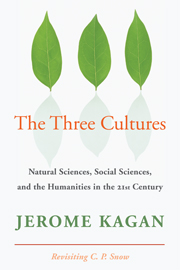Crossref Citations
This Book has been
cited by the following publications. This list is generated based on data provided by Crossref.
PERZ, STEPHEN G.
BRILHANTE, SILVIA
BROWN, I. FOSTER
MICHAELSEN, ANDREA CHAVEZ
MENDOZA, ELSA
PASSOS, VERONICA
PINEDO, RAUL
REYES, JUAN FERNANDO
ROJAS, DANIEL
and
SELAYA, GALIA
2010.
Crossing boundaries for environmental science and management: combining interdisciplinary, interorganizational and international collaboration.
Environmental Conservation,
Vol. 37,
Issue. 4,
p.
419.
Hulme, Mike
and
Mahony, Martin
2010.
Climate change: What do we know about the IPCC?.
Progress in Physical Geography: Earth and Environment,
Vol. 34,
Issue. 5,
p.
705.
Stein, Zachary
2010.
On the Difference Between Designing Children and Raising Them: Ethics and the Use of Educationally Oriented Biotechnology.
Mind, Brain, and Education,
Vol. 4,
Issue. 2,
p.
53.
Ikkos, George
2010.
Futures of psychiatrists 2020: external and internal challenges.
International Psychiatry,
Vol. 7,
Issue. 4,
p.
79.
Hartley, John
2010.
Paradigm shifters: tricksters and cultural science.
Cultural Science Journal,
Vol. 3,
Issue. 1,
Hale, Matthew
Raymond, Graham
and
Wright, Catherine
2010.
List of publications on the economic and social history of Great Britain and Ireland published in 2009.
The Economic History Review,
Vol. 63,
Issue. 4,
p.
1129.
Eckenfels, Edward J.
2010.
Reflections of a Wandering Humanist Masquerading as a Social Scientist.
Annals of Behavioral Science and Medical Education,
Vol. 16,
Issue. 2,
p.
3.
Wainwright, Joel
2010.
Climate Change, Capitalism, and the Challenge of Transdisciplinarity.
Annals of the Association of American Geographers,
Vol. 100,
Issue. 4,
p.
983.
Boggero, Marco
2010.
Clinical Field Research in a Post‐conflict Setting.
Global Policy,
Vol. 1,
Issue. 3,
p.
315.
Judge, E. A.
2010.
Where is the Truth in History? How does the Discipline of History Relate to ‘The Faith of the Gospel’ (PHIL. 1:27)?.
Journal of Christian Education,
Vol. os-53,
Issue. 1,
p.
5.
2010.
Publications Received.
Contemporary Sociology: A Journal of Reviews,
Vol. 39,
Issue. 5,
p.
635.
Janik, Allan
2010.
A future for the humanities?.
Innovation: The European Journal of Social Science Research,
Vol. 23,
Issue. 1,
p.
1.
Saloma-Akpedonu, Czarina
2010.
Reviews: Reflections On Culture: Massimo Negrotti, ed., Yearbook of the Artificial: Nature, Culture and Technology, Volume 5. Bern: Peter Lang, 2008, 284 pp., ISBN 9783039114764, £43.50.
International Sociology,
Vol. 25,
Issue. 5,
p.
670.
Kalra, Priya
and
O'Keeffe, Jamie K.
2011.
Communication in Mind, Brain, and Education: Making Disciplinary Differences Explicit.
Mind, Brain, and Education,
Vol. 5,
Issue. 4,
p.
163.
Ikkos, George
St. John-Smith, Paul
and
McQueen, Daniel
2011.
What is the object of the psychiatrist's expertise?.
The Psychiatrist,
Vol. 35,
Issue. 1,
p.
33.
Demetriou, Andreas
Spanoudis, George
and
Mouyi, Antigoni
2011.
Educating the Developing Mind: Towards an Overarching Paradigm.
Educational Psychology Review,
Vol. 23,
Issue. 4,
p.
601.
Schultz, Jaime
2011.
Caster Semenya and the “Question of Too”: Sex Testing in Elite Women's Sport and the Issue of Advantage.
Quest,
Vol. 63,
Issue. 2,
p.
228.
Bortolini, Matteo
2011.
The “Bellah Affair” at Princeton.
The American Sociologist,
Vol. 42,
Issue. 1,
p.
3.
Wild, Peter J.
2011.
Complex Engineering Service Systems.
p.
417.
Leydesdorff, Loet
Hammarfelt, Björn
and
Salah, Almila
2011.
The structure of the Arts & Humanities Citation Index: A mapping on the basis of aggregated citations among 1,157 journals.
Journal of the American Society for Information Science and Technology,
Vol. 62,
Issue. 12,
p.
2414.





